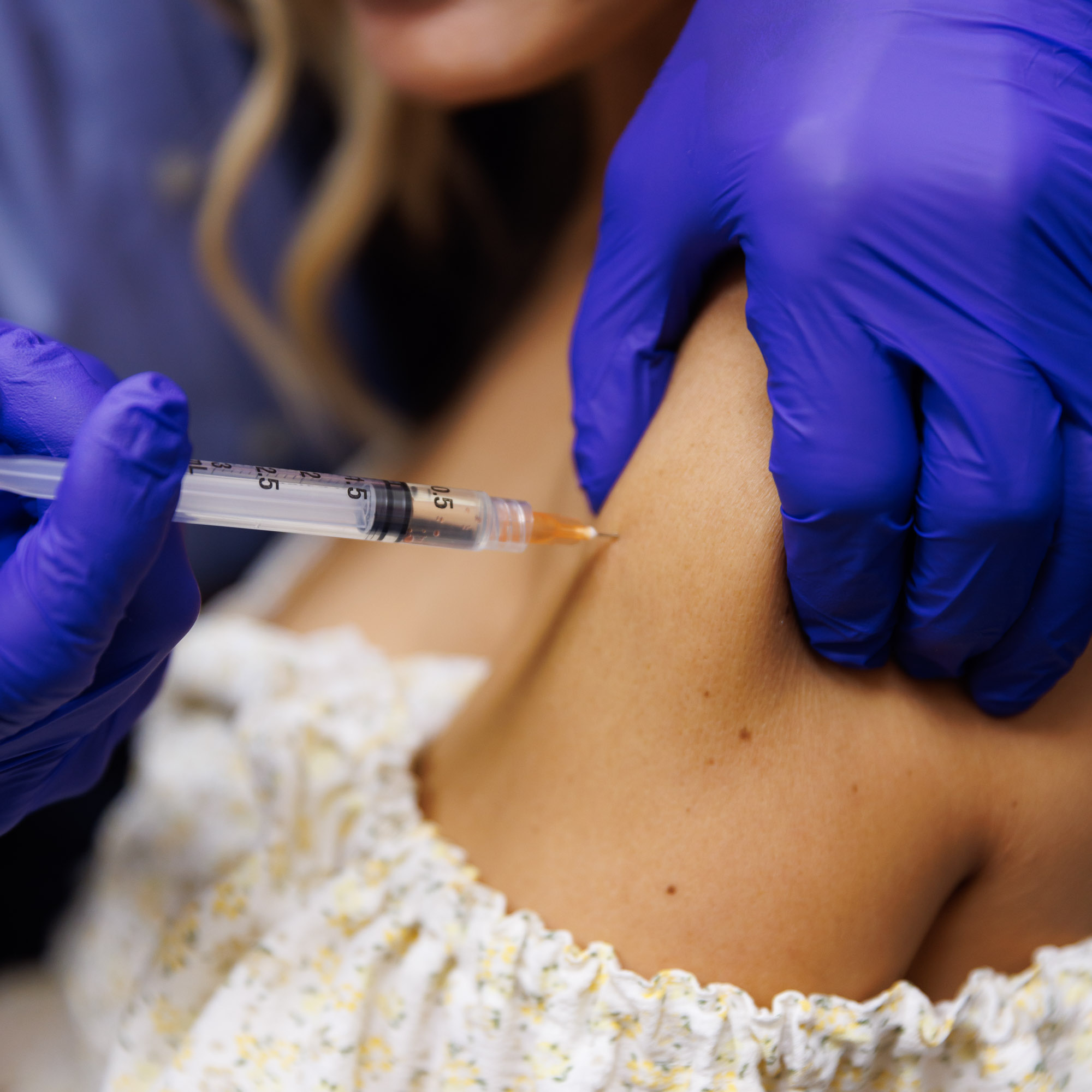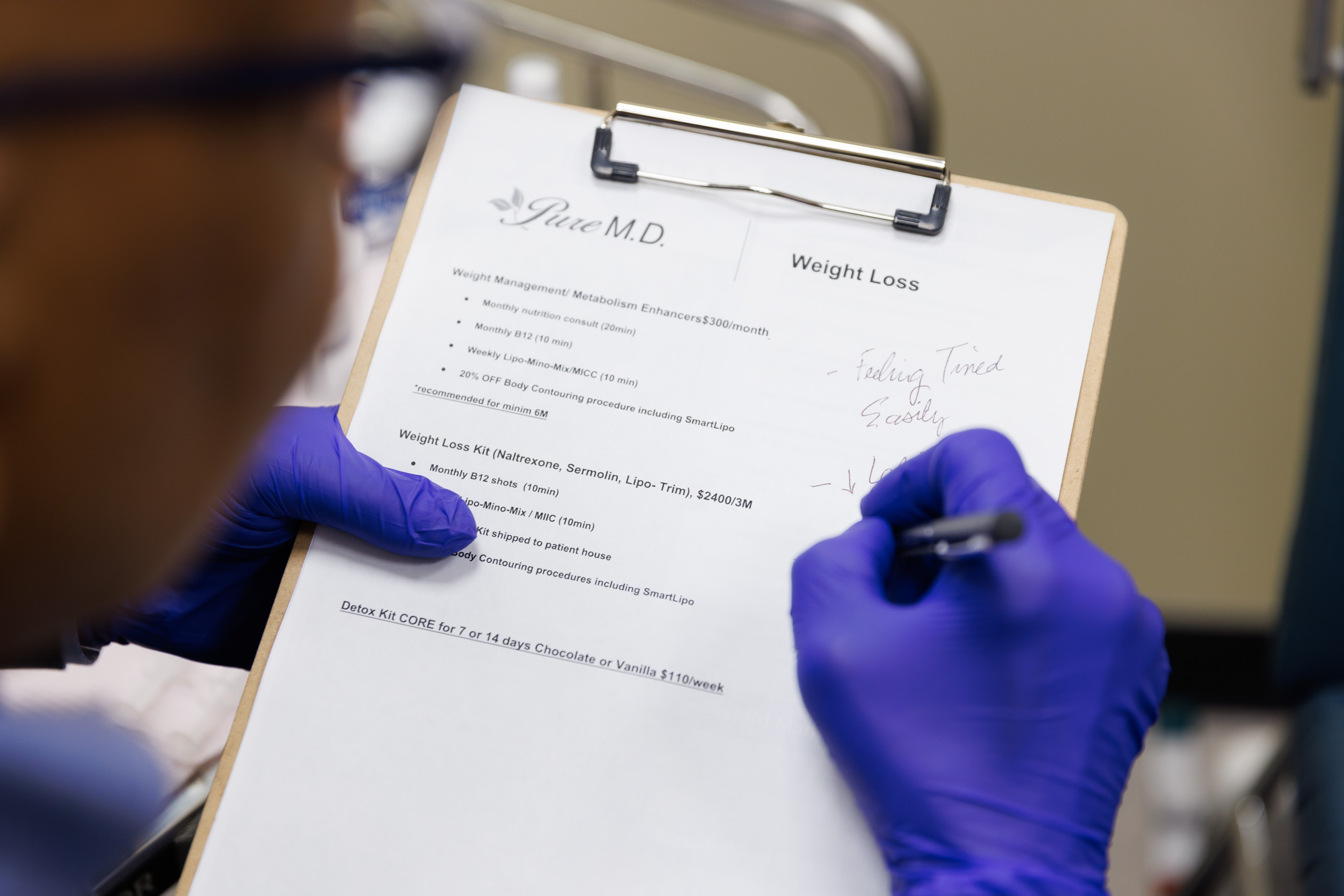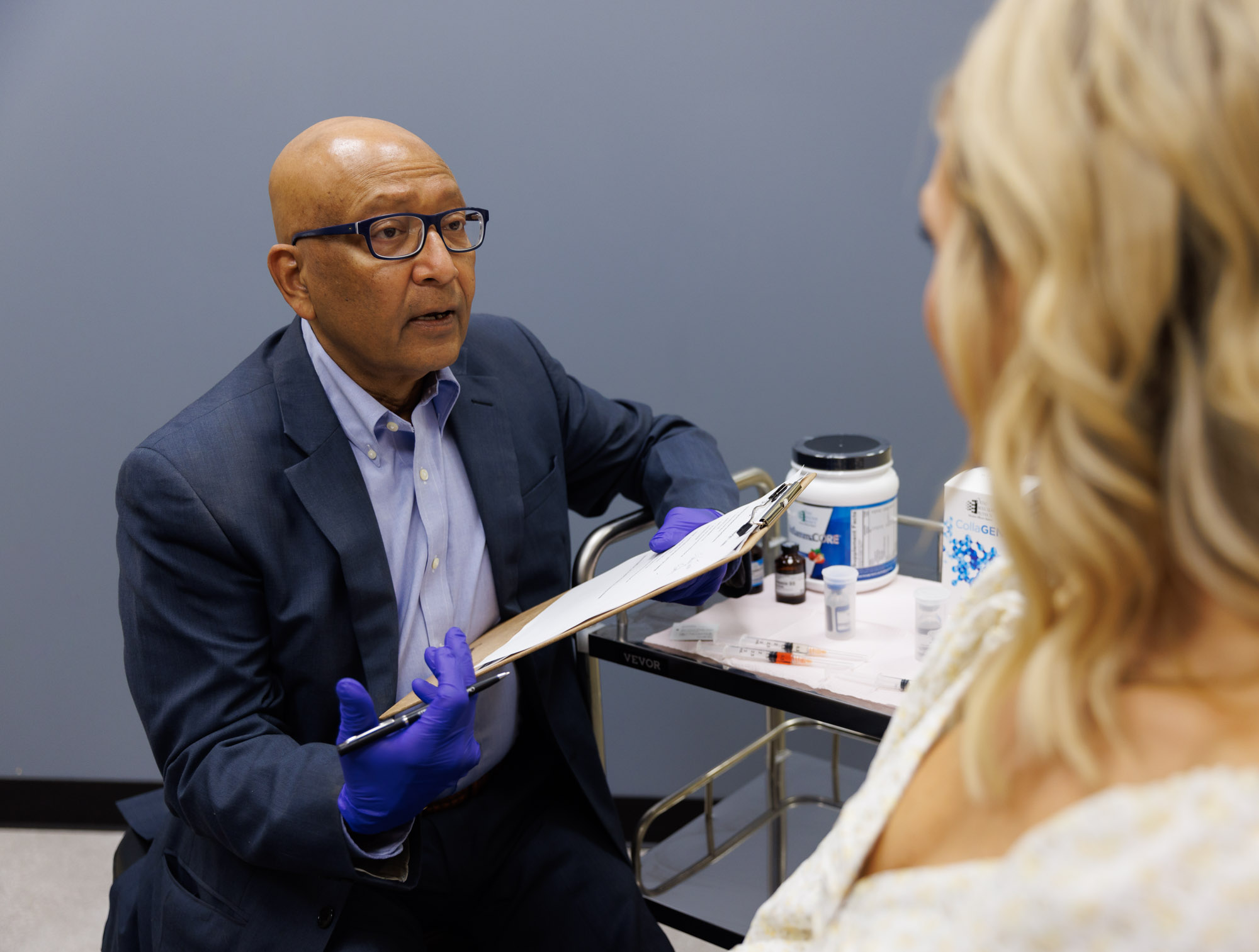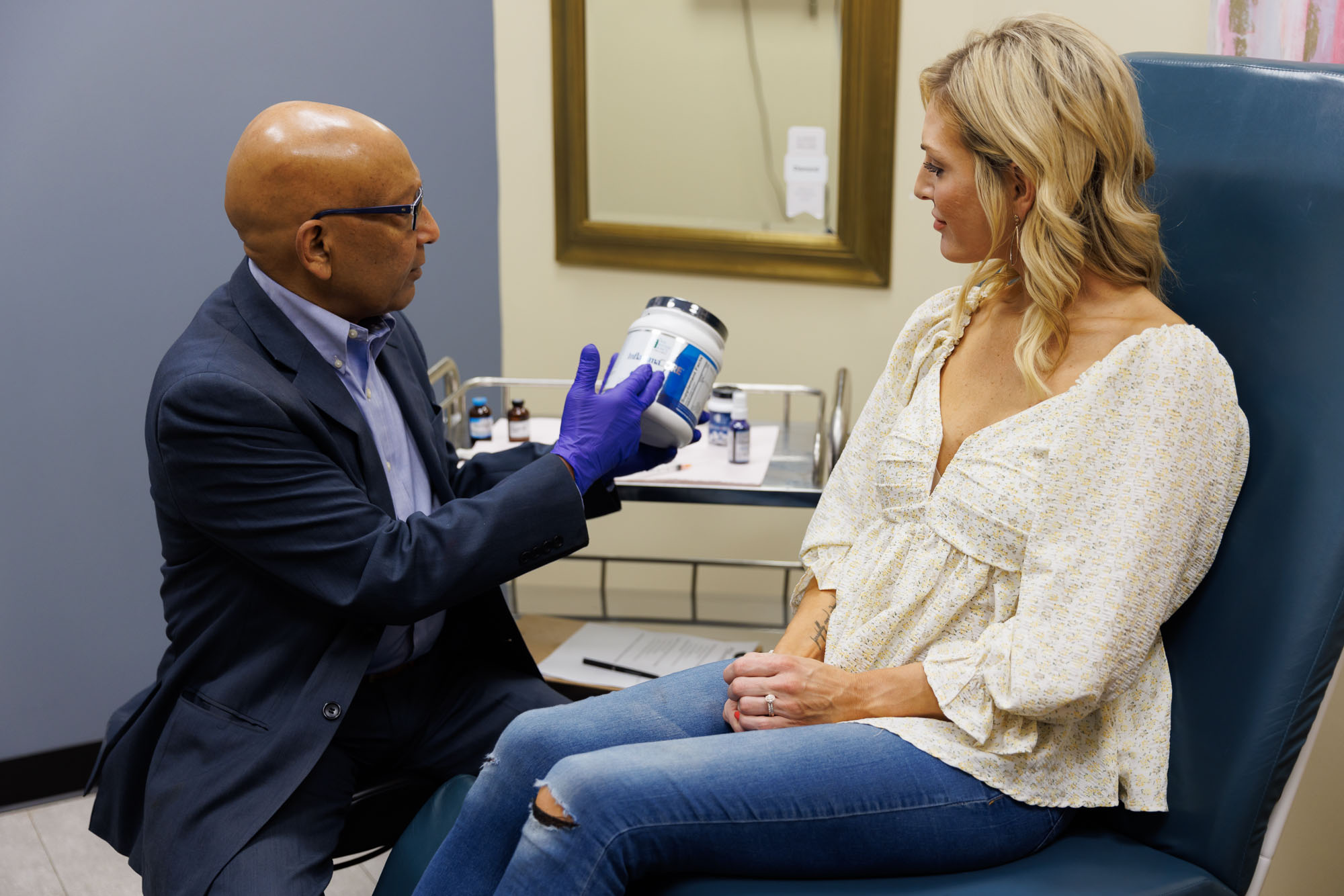A hormone deficiency can cause a host of problems for both men and women. Not just physical issues like lack of energy and decreased muscle mass, but emotional and even sexual issues as well. And though people of any age can suffer from a hormone deficiency, it is more commonly found in people over the age of 40.
Hormone Replacement Therapy uses a variety of different methods to help restore your hormones to optimal levels! When taken with the correct dosage, patients can benefit from increased mental, physical, and emotional health and wellness.
Treatment Details
What it Treats
Problems with sleep
Lack of energy
Muscle loss
Symptoms of menopause in women (hot flashes, vaginal dryness, urinary incontinence, etc.)
Mood swings and irritability
Loss of libido
Sexual health issues (for both men and women)
And more!
Procedure Time
Up to 3 months or longer
Eligibility
Female or Male
21 years or older
Why Try Hormone Replacement Therapy in Dayton?
01
Improvements to Health and Well-being
With the proper dosage, hormone replacement therapy can lead to improvements to sleep, mood, bone strength, muscle mass, and more!
02
Increased libido and sexual performance
Hormone replacement therapy has also been shown to improve sex drive and treat symptoms of sexual dysfunction, such as erectile dysfunction in men and vaginal dryness in women.
03
Continue as needed
Though some patients benefit from continued hormone replacement therapy over the course of multiple years, others experience the full benefits after just a few months! If you decide you no longer wish to continue hormone replacement therapy, you can stop at any time.
The Hormone Replacement Therapy Process
What to Expect
Consultation
Before your hormone replacement therapy in Dayton, you'll meet with one of our providers for a consultation. We will discuss your concerns, symptoms, goals, and sensitivities. Based on this initial consultation, we will create a personalized treatment plan for your needs, which could include oral or topical medications.
Peptide Therapy Treatment
If peptide therapy is deemed a suitable treatment by your provider, you'll use your medication as prescribed in a home setting.
Results
You'll begin to experience the results of your hormone replacement therapy after several weeks, with full results coming after roughly 3 months.
Before Hormone Replacement Therapy, It is Important to:
Know the risks. People suffering from any of the following conditions should likely avoid hormone replacement therapy:
-
- Blood clots
- Cancer (such as breast, uterine, or endometrial)
- Heart disease or heart attack
- Liver disease
- Known or suspected pregnancy
- Stroke
Know the side effects. There are several potential side effects of hormone replacement therapy treatments. If you experience extreme or worsening symptoms, please contact your provider.
-
- Hot flashes
- Bloating
- Swelling or tenderness
- Cramps
- Indigestion
- Vaginal bleeding

Following Hormone Replacement Therapy, We Recommend:
- Using all medications as directed for the recommended amount of time
- Speaking to your provider if you experience any abnormal or prolonged symptoms

Frequently Asked Questions
How long does it take to experience results from hormone replacement therapy?
The time to experience results from hormone therapy varies from person to person. Typically, you can expect noticeable results within a few weeks.
What side effects are there?
Men and women can experience different side effects from HRT. Some of these may resolve as your body acclimates to the new hormone levels.
This includes but is not limited to:
Nausea
Bloating
Headaches
Tenderness or swelling
Acne
Mood swings
Abdominal pain
How long do I have to continue treatment?
How long you'll do hormone replacement therapy varies greatly between each individual due to health factors, symptoms, genetics, and more. Your provider will continually check in with your progress and discuss how long to continue treatment as needed.
Who is eligible for hormone replacement therapy?
Those who are experiencing one or more symptoms of hormone imbalance, and are not pregnant or breastfeeding, are eligible for hormone therapy. Most commonly, hormone therapy patients are post-menopausal women and men over the age of 50.
How do I know if I have a hormone deficiency?
The best way to determine if you have a hormone deficiency is through detailed testing from a qualified provider. Because the symptoms of imbalance range greatly, it's important to have a consultation and testing to determine if you have a hormone deficiency before beginning treatment.

Get Started
Tell us more about what you need using our Virtual Consultation Tool. Simply input your concerns and we'll provide custom treatment recommendations for your unique needs.


